Photo: Erin Lefevre/NurPhoto via Getty Images
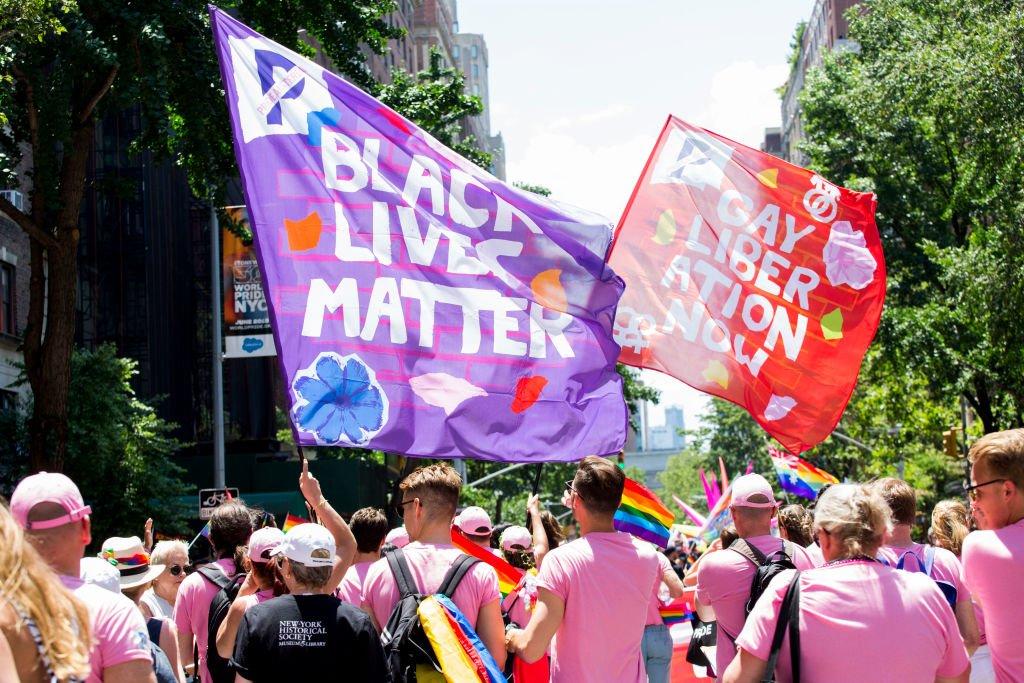
Attendees at 2019 Pride Parade in New York City
news
Global Pride 2020 Announces Lineup Additions, Will Focus On Black Lives Matter: Todrick Hall, Adam Lambert, Kesha, Leann Rimes And More Confirmed
Taking place June 27, the inaugural 24-hour online LGBTQ+ pride event will also feature speakers like former U.S. Vice President Joe Biden, Speaker Of The U.S. House Of Representatives Nancy Pelosi, Canadian Prime Minister Justin Trudeau and others
Global Pride, a newly launched worldwide 24-hour online LGBTQ+ pride event, has announced additional speakers, performers and guests for its forthcoming inaugural celebration, which takes place June 27.
Newly added artists include Adam Lambert, Kesha, Natasha Bedingfield, Leann Rimes, Pussy Riot, Village People, Mel C of Spice Girls, Calum Scott and Mary Lambert. They join previously announced artists like Pabllo Vittar, Ava Max, Olivia Newton-John, Deborah Cox and several others.
The event will also include newly announced speakers like former U.S. Vice President and current Presidential Democratic candidate Joe Biden, Speaker Of The U.S. House Of Representatives Nancy Pelosi, Canadian Prime Minister Justin Trudeau, Pussycat Dolls, Rita Ora, Bebe Rexha and others from the worlds of music, entertainment, advocacy and politics.
Singer, songwriter, actor and director Todrick Hall will host.
According to a press release announcing the news, the event will "amplify black voices" and will center on the Black Lives Matters movement; Global Pride organizers are working in conjunction with the organization's founders for the event.
"As a Black woman in the LGBTQIA+ community, I feel we must confront the systemic racism and violence facing my Black brothers, sisters and non-binary siblings, in the larger culture and within the LGBTQIA+ community. I could not think of a larger platform than Global Pride to do this," Natalie Thompson, co-chair of the Global Pride organizing committee, said in a statement.
“I am proud to work beside so many diverse colleagues from around the world," she continued. "Our community knows well that we must confront hate and prejudice head-on. We have been watching an epidemic of violence against trans people of color – mostly women – in the past decade and this larger discussion must be inclusive and all encompassing. All Black Lives Matter.”
Billed as the "world’s biggest ever LGBTI+ Pride event," per the event's website, Global Pride is a 24-hour livestreamed event comprising music, performances, speeches and messages of support. The event will be available to watch on host Todrick Hall's YouTube channel, iHeartRadio’s YouTube channel and on the Global Pride website.
Produced by Pride organizations from around the world, including InterPride and the European Pride Organisers Association, two of the world’s biggest international Pride networks, Global Pride 2020 was launched in response to the more than 500 Pride events that were cancelled or postponed worldwide due to the COVID-19 pandemic.
Want To Support Protesters And Black Lives Matter Groups? Here's How
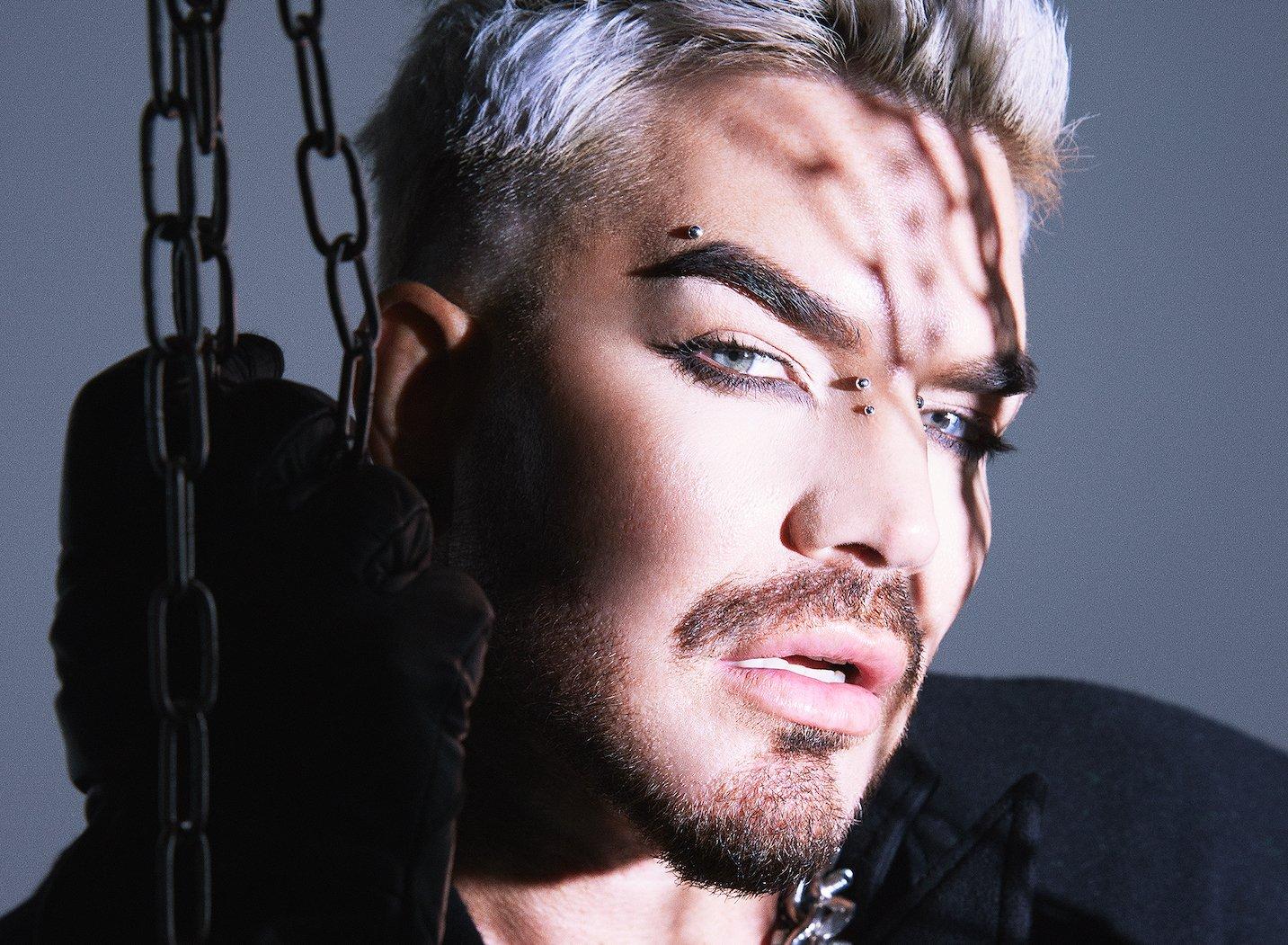
Photo: Brian Ziff
interview
Inside Adam Lambert's 'Afters': How '90s House, Clubbing & Lots Of Sex Inspired His Most "Liberated" Music Yet
With his latest project, Adam Lambert leans into his sexuality and queer nightlife culture like never before. The singer details the uninhibited inspirations behind songs like "WET DREAM" and "LUBE."
Fifteen years into his career, Adam Lambert is primed for the after-party. In fact, the pop star has made an entire EP for the occasion — fittingly titled Afters.
The six-track project, which drops July 19 via More Is More Records, finds the big-voiced singer trading the expansive covers of his last LP, 2023's High Drama, for a no-holds-barred romp that takes listeners from the club to the after-party to the bedroom and beyond.
"It's my love letter to our nightlife culture," Lambert tells GRAMMY.com on a phone call from New York City. And though he admits to recording the bulk of Afters in L.A., the project is imbued with the club kid spirit of New York's queer community — from the primal sexuality dripping off dual lead singles "LUBE" and "WET DREAM" to the strutting, ballroom-ready kiss-off (and nearly NSFW title) of follow-up track "CVNTY."
Ahead of the EP's release, the queer GRAMMY nominee (and frequent Queen collaborator) celebrated his new musical chapter with a special party at The Standard High Line's nightclub Le Bain. Organized by legendary NYC nightlife impresario Susanne Bartsch as part of her famous On Top! event series, the soiree felt like a full-circle moment for Lambert as he watched drag artists like God Complex and ShowPonii slay the house down boots to his new music.
"I've always really been drawn to that kind of world," Lambert says of the thriving LGBTQIA+ party scene. "I think even way back before '[American] Idol,' I remember being in L.A., when I was in my early twenties and trying to find the parties. They were pretty underground at the time, where people would dress up and wear crazy makeup. And of course, I was there in my platform boots, stompin' in. So I've always sort of sought out that community. I love it."
Below, Lambert takes GRAMMY.com through the colorful and unapologetically queer inspirations that led to Afters, from the '90s house sounds of Crystal Waters to finding freedom in radical creative expression — and, of course, plenty of sex.
Feeling Free — And Sexy
I've always loved electronic dance music, I've always loved house. And it's interesting because, for a long time, it was considered sort of "niche" for a gay person to make dance music. And now it just feels like it makes sense. [Laughs.] It's so obvious, you know?
I was working so hard for so long and on tour for so long, and I did a lot of tours with Queen and on my own stuff. I was so focused on my career for so many years, and then as the pandemic kind of faded and we were getting into that next chapter, I made some time for a social life. Which was much needed. That's what kind of inspired me to want to make this music.
I just wanted to make something that felt like my actual social life — that felt like my life. I'm in a relationship, we've made lots of friends in L.A., we have lots of after-parties. We socialize, we go out, we go to clubs, we go to bars. I wanted to make music for that.
My private life is...exciting is how I would probably put it, and passionate. So it's definitely fueled from that. The music is written in first person, but it's also sort of meant to inspire the listener to want to feel that type of freedom as well. You listen to something about sex and hopefully it makes you go, "Yeah! I feel sexy!"
Overcoming Post-'American Idol' PTSD
When I first came out the gate after Idol, I did a big old performance [at the 2009 American Music Awards]. I got in trouble for kissing the guy and having sexy dance moves and stuff, and that gave me a little dash of almost a PTSD of, like, "Oh, OK, there's a line that I can't cross. And if I do, I could risk losing everything." And that fear drove me down a certain path where I felt like I had to hold back a certain amount.
That was very much a reflection of where we were at as a society at the time, and what the mainstream was able to digest. The music industry was a different game back then. There were a lot more gatekeepers, a lot more obstacles that I encountered. Now, the industry has shifted so much, just in terms of how people get music, how you can reach your listener, how you can make music, what kind of label situation you have set up. There's a lot less filtering going on. That's what also inspired me to want to make something that was more liberated.
My perspective has shifted a lot. That fear early on came from a place of, "I don't want to lose this opportunity." There was a little dash of imposter syndrome in there. You know, coming off of "Idol," feeling like, "Oh my god, how did I get here?" It happened so fast. And I think just having stayed in the game over the last 14 years has given me a sense of confidence. It's given me a sense of belonging.
I've found more of who exactly I am over that time. Working with Queen has been a real boost in confidence as well, and has allowed me to sort of feel like I've earned something.
Setting The Mood
I love music that puts you in a mood, in a headspace. And that's what I wanted Afters to be. That's why I called it Afters. It was, yes, you could totally listen to these at a club, but it's also, like, lyrically, when you go to a club and then you go to an afterparty, the rules are out the window. You can do whatever you want, you know? And people feel that freedom.
There's something to be said about growing up a bit and maturing as a performer. You feel less of a need to prove something [vocally]. I think I'm finding less of an impulse to be, like, "Look what I can do!" and more, "Look what I can make you feel." The "less is more" thing does start to become more obvious.
As I've gotten a little older, too, my voice has shifted a bit. And I have, like, lower parts of my voice that I haven't really dug into before that I definitely did on this project. Which is kind of a fun experiment. I just wanted to do something that was more vibey.
'90s House & '20s Hyperpop
I like going into a project with, like, a reference and a direction. It gives you sort of a roadmap…I have a whole playlist of newer stuff that I kept adding. A lot of it's somewhat obscure, but then there's artists out there that I think are really cool, like Slayyyter [or] COBRAH. A lot of the DJs that I really like — Chris Lake is amazing. Even stuff like Disclosure… I really love them. I just wanted to make music that made me move.
I found myself gravitating towards a similar sound over and over again — sort of a dirty house, kind of sexy tech-house sound. Certain textures and sonics that I started noticing as a pattern of the stuff that I liked.
I love a good, soulful house vocal, always…Like Crystal Waters or any of those. I love that, like, '90s house vibe. And obviously "DEEP HOUSE" [on Afters] has a little bit of that. So does "WET DREAM," where you get into that soulful pocket. It's so fun to sing from that place.
Queer Voices In The Studio
It was really important for me to make sure there were queer people in the room when I was writing these songs. Back when I was first starting, the major label writing setups that I was put into, there weren't many queer people. And that's changed so much — there's more and more queer people in the music space. Definitely top-line songwriters, and then even more and more, I'm finding producers that identify as queer, and that's really exciting. 'Cause it makes everybody less afraid and just willing to sort of go for it.
"WET DREAM," I did with Sarah Hudson and JHART and Ferras, who I've known for ages. Vincint and Parson James worked with me on "LUBE." Just people that I really admire. Vincint did some background vocals on "LUBE," actually, which is cute. Vincint and I did a collab on his project recently as well, so that was cool that we got to each kind of add to each other's project.
A lot of the songwriters are friends of mine who I've known for a long time. I was like, "Do you want to do a song?" Which makes the writing process so much fun.
Queer Rebellion & Sexual Healing
I think, right now, people want to find freedom. I think people want to find an escape. There is a lot of sociopolitical energy right now that's kind of dark and negative, that's coming at us from the right wing, super-conservative side of the world. Some of that can make us feel dark as well, and kind of discouraged.
But I also think there's a lot of us, including myself, that feel like that lights a bit of a rebellious flame in us, and makes us want to shine brighter and be bolder and be wilder and crazier than we are. And [I] see that out and about: people are more and more expressive, emotionally, with their identity [and] how they want to explore [it].
There are members of our community that want to explore their gender identity; there are members of our community that want to explore their feminine side or their masculine side. There's, I think, more acceptance in that exploration and that expression right now than there's ever been. It's f—ing great. It's always been there in the [LGBTQIA+] community, but you're just seeing it on display a little bit more. People are more comfortable going there and exploring it, and I love that.
There's less and less shame around sex than there's ever been. We're more mainstream than we've ever been — there's more with social media and [pauses] other types of media on the internet. And that's really exciting. 'Cause sex is f—ing great. And healing, and wonderful, and exciting. It's our human right to explore our sexuality, and I see more people feeling freer in that.
Finishing With A Climax
One of the Afters songs, "FACE," was actually created a while ago. I wrote that with Pete Nappi, like…four-ish years ago? During the pandemic, I think. But it sounded very different. And once I started getting more house tunes together, I kinda was like, "OK, can we take this idea and evolve it into a higher BPM and a dancier kind of direction?"
We sped it up, we added a bigger beat to it, more of a four-on-the-floor feel to make it feel "club." But it's definitely the last track on the EP for a reason. 'Cause it slows down compared to the other songs a bit. If the rest of the EP is foreplay, it's sort of like the home run. [Laughs.] It's like once you get that person that you've been into all night into the bed, what happens?
Latest News & Exclusive Videos

2024 Paris Olympics Opening Ceremony: Watch Celine Dion, Lady Gaga, Gojira & More Perform

Ice Spice Is The Drill Queen On 'Y2K!': 5 Takeaways From Her Debut Album

New Music Friday: Listen To New Songs From Halsey, MGK And Jelly Roll, XG & More

Watch Young MC Win Best Rap Performance In 1990

The Red Clay Strays Offer A New Kind Of Religion With 'Made By These Moments'
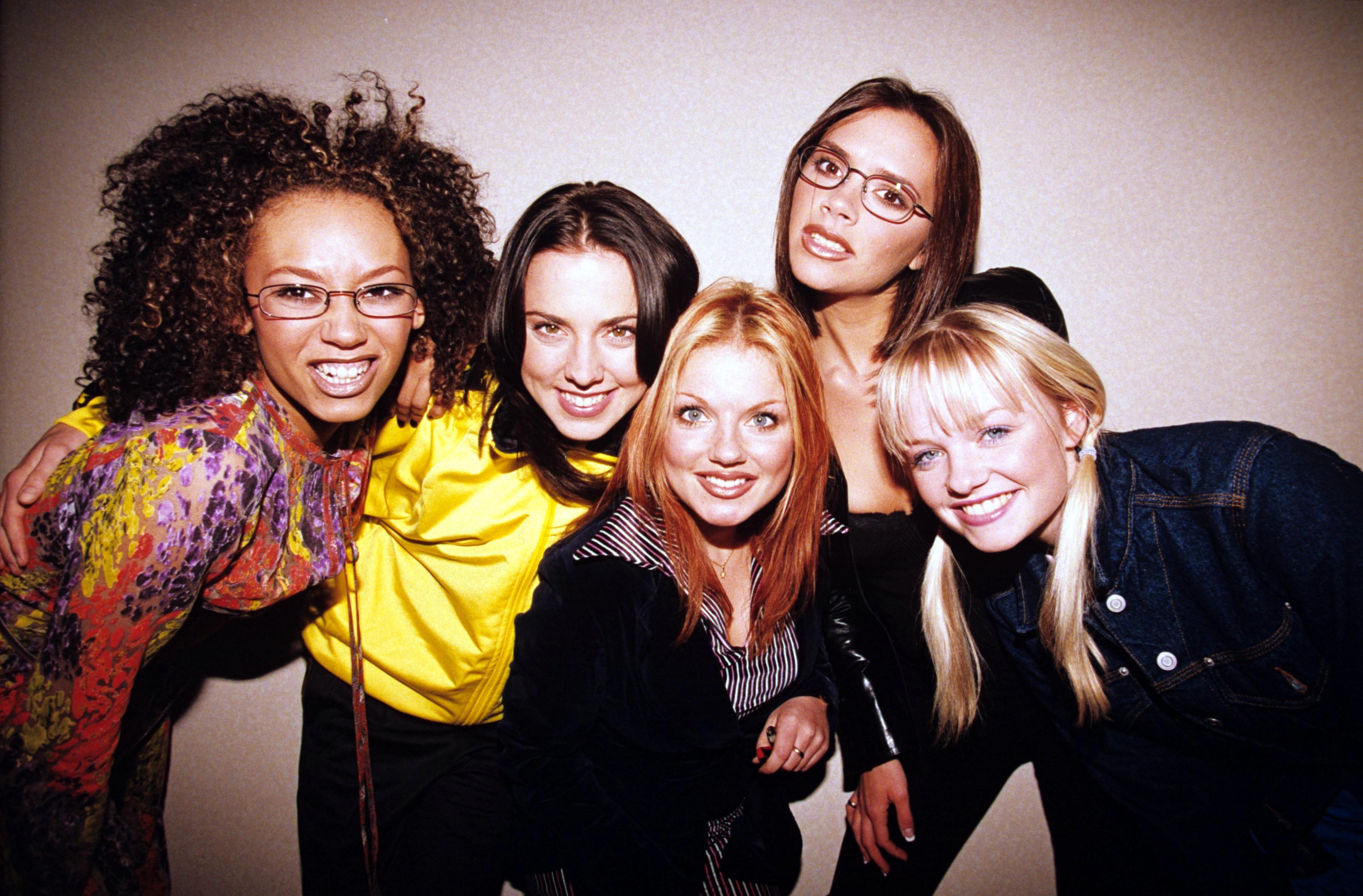
Photo: Brian Rasic
news
On This Day In Music: Spice Girls Release "Wannabe," Their Iconic Debut Single
In 1996, the Spice Girls' spirited anthem not only dominated the charts and airwaves, but also put girl groups on the map. If you want to uncover the magic behind their meteoric rise, "you gotta listen carefully…"
Who could have guessed that a track recorded in under an hour would become an iconic celebratory anthem of female empowerment and friendship? It seems like the Spice Girls did.
The music industry was ripe for a bouncy pop hit in 1996, and "Wannabe" entered the arena with undeniable power. With an infectious blend of dance-pop and hip-hop, as well as catchy lyrics promoting female empowerment, "Wannabe" carried on the spirit of the early '90s riot grrrl movement while delivering a radio-friendly bop.
The Spice Girls' debut single proved that the girl group wouldn't be wannabe stars for long. The song spent four weeks on the Billboard Hot 100, and was certified platinum multiple times in the U.S., United Kingdom, Australia, and several other countries.
Producer Richard Stannard told BBC that the now-canonical British quintet battled Virgin Records to release "Wannabe" as their debut single (executives pushed for "Love Thing"). While both songs would appear on Spice, the Spice Girls' 1996 debut album, the group's instinct and confidence paid off. Twenty-eight years later, "Wannabe" remains an iconic pop song and one of the Spice Girls' most enduring tracks.
While the Spice Girls may have seemed like an overnight success in America, its members had been working their way through the British music scene for years. In March 1994, hundreds of aspiring stars crammed into Dancework Studios in London after an advertisement was posted in The Stage magazine looking for the next girl band.
The groups were randomly split up, taught a dance routine, and then had to perform the song for talent managers and father-son duo, Bob and Chris Herbert. One month later, with 10 girls left, the initial final four — Melanie "Scary Spice" Brown, Melanie "Sporty Spice" Chisholm, Victoria "Posh Spice" Adams, and Geri "Ginger Spice" Halliwell — were all chosen to form the final group with a then-17-year-old Michelle Stephenson. The group moved into a home together, where they received additional dance training and vocal coaching. However, Michelle was soon replaced by Emma "Baby Spice" Bunton, completing the lineup of Spice Girls that as we know them today.
"Of course I regret I'm not a multi-millionaire like them. But at the time I left the group I knew I was doing the right thing and I still think it was the right thing," Stephenson told The Mirror in 2001. "It wasn't my kind of music and they were not living the lifestyle I wanted."
The group's charisma and corresponding archetypal personalities were put on display in the music video for "Wannabe." The iconic, single-take music video shot in London’s Midland Grand Hotel (now St. Pancras Renaissance Hotel), became as legendary as the track itself. In 2015, Billboard included the video for "Wannabe" in a list of 10 iconic girl group videos, solidifying the video's lasting impression.
Directed by Johan Camitz, the video was the perfect visual introduction to the group: Ginger Spice unapologetically dances through the hotel in a sparkly Union Jack leotard alongside Scary Spice, whose bold persona is conveyed through carefree dances that included whipping her hair around. The group's distinct, playful personalities remained a key selling point used throughout their career.
"Wannabe" producers Matt Rowe and Stannard first saw the Spice Girls at a showcase, and the duo instantly knew that they had the next group of superstars. Soon after, Rowe and Stannard worked with the group to produce "Wannabe," and the chemistry was undeniable.
In her 2002 book, Catch a Fire: The Autobiography, Brown recalls that the producer duo understood the group's vision and automatically knew how to blend "the spirit of five loud girls into great pop music."
"Wannabe" was an inescapable radio hit in the '90s — for all the right reasons. From the punchy beat and distinctive vocal inflections, to the shouts of "if you wanna be my lover," the song remains as a persistent earworm.
Even science backs that claim up. According to a 2014 study conducted by the University of Amsterdam and Manchester's Museum of Science and Industry, researchers found that study participants were able to identify and name "Wannabe" in an average of 2.29 seconds, making it the quickest recognized song in the study. This was ahead of Lou Bega’s "Mambo No 5" and Survivor’s "Eye of The Tiger," and underscores "Wannabe’s" celebrated and timeless status.
While the song itself is a lively, carefree summer anthem perfect for blasting in the car with the windows down, its lyrics resonate with a powerful message of female empowerment and friendship, standing tall above conventional romantic themes.
Read more: 'Spiceworld' At 25: How The Spice Girls' Feminine Enthusiasm & Camp Became A Beacon For Queer Youth
"Girl Power embodies much more than a gender," Gerri Horner, formerly Halliwell, told BBC in 2017. "It's about everybody. Everybody deserves the same treatment, whatever race you are, gender you are, age you are. Everybody deserves a voice."
With such a strong debut as "Wannabe," it's clear why the Spice Girls weren't just a one-hit wonder. The British girl group went on to deliver dozens of other pop hits like "Say You'll Be There" and "2 Become 1," which defined the late '90s and early '00s. Released months after "Wannabe," Spice would spend 15 weeks at No. 1 on the Official Charts U.K. Album Chart and also topped the U.S. Billboard 200 chart. The album sold more than 23 million copies worldwide.
Even after 28 years, the meaning of "zig-a-zig-ah" remains a mystery, but it's a small price to pay for the beloved dance-pop song we cherish today.
Latest News & Exclusive Videos

2024 Paris Olympics Opening Ceremony: Watch Celine Dion, Lady Gaga, Gojira & More Perform

Ice Spice Is The Drill Queen On 'Y2K!': 5 Takeaways From Her Debut Album

New Music Friday: Listen To New Songs From Halsey, MGK And Jelly Roll, XG & More

Watch Young MC Win Best Rap Performance In 1990

The Red Clay Strays Offer A New Kind Of Religion With 'Made By These Moments'
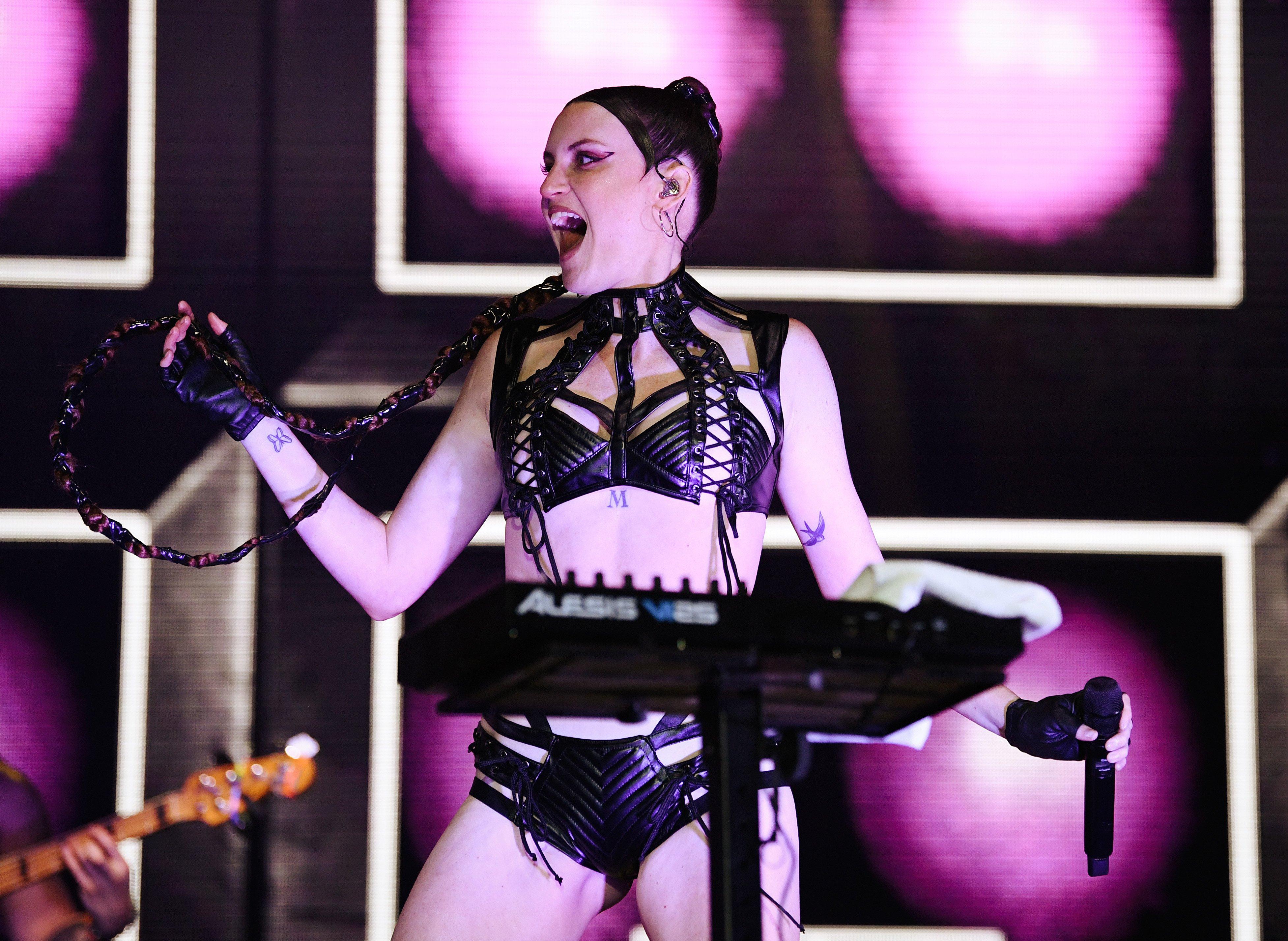
Photo: Chelsea Guglielmino
list
5 LGBTQIA+ Record Labels To Check Out: Get Better Records, So Fierce! And Others
During Pride Month and beyond, LGBTQIA+ owned and operated record labels are diligently working to provide queer artists a platform while providing more visibility for their communities.
Music is often a unifier — something that ties us together, allowing us to bond over our shared experiences. This is especially true among LGBTQIA+ communities. Whether you’re hearing MUNA’s pop songs crackle over speakers in a record store or finding ethereal deep-cut Ethel Cain demos on SoundCloud playlists, the queer community find an inevitable connection in the artists they seek out.
For decades, queer artists have cultivated hidden scenes in rave, techno and dance music. Today, a new generation of LGBTQIA+ artists are shaping contemporary pop, from Reneé Rapp and Towa Bird, to Chappell Roan and RYL0. However, we cannot acknowledge this mainstream resurgence of queer talent without reflecting on the limitations which hold back the wider music industry from becoming more accommodating to LGBTQIA+ artists.
A 2024 study from Queer Capita in partnership with Billboard revealed that 94 percent of music business participants feel that the industry fails to provide adequate resources or representation for the queer community. However, there's a severe lack of data on the number and scope of queer-specific record labels (those that are LGBTQIA+ owned, run or whose rosters reflect that demographic) — a shocking shortfall considering how queerness shapes the music industry financially. A 2022 "The Power of LGBTQ+ Music" report by Luminate revealed that, queer fans spend an average of 20 percent more on merch and, generally, spend $72 more on music than the general public.
Read more: 15 LGBTQIA+ Artists Performing At 2024 Summer Festivals
Queer music is profitable and shaping listening trends. Although LGBTQIA+ acts are eagerly supported, — and major labels seem to be taking steps to increase queer representation on a corporate level and on their rosters — the wider industry must continue to support the indies and queer imprint labels that are fighting to survive.
These queer indie record labels are not only highlighting LGBTQIA+ artists and creating accessible, accommodating spaces, but they're often doubling down on the importance of visibility. As an artist or employee, it wouldn’t hurt if your boss (label manager, record executive, press assistant, etc) was queer too, right? This integration and inclusivity is essential when building equitable infrastructure in music.
So, now with Pride Month upon us, there’s been no better time to reflect on the vital resource that LGBTQIA+ labels provide and the ways they encourage our industry to do and be better. These labels are much more than champions of queer talent; they’re signifiers of independent ethos and resilience that keeps music communities thriving.
From the late-night voguing parties in Shanghai that inspired Medusa Records to the against-the-grain roster of Saddest Factory Records, here are five global LGBTQIA+ record labels showcasing the necessity and irreplaceable talent of queer creatives.
Get Better Records
Location: Philadelphia, Pennsylvania
Artists to know: Alice Bag Band, La Dispute, Victoria Park, ZORA
Get Better Records has been around since 2009 and, over its 15 years, has become one of the most notable queer and trans-owned labels. Get Better was formed by Control Top drummer Alex Lichtenauer and their friend Nick King, though the label is now solely run by Lichtenauer. Get Better's roster platforms punk, alternative, experimental and hardcore acts.
Whether you’re looking for the intimate sound of Suzie True, the queer hardcore attitude of Baltimore newcomers No Doubt or want to experience the reverie of how Bacchae are twisting underground DC punk into their own boot-stomping beat, Get Better Records has become a hotspot for innovative acts bringing their distinct style to the music industry.
A proudly self-described “queer and trans owned” record label with a simple motto — inspiring everyone to practice and play. Through their committed gritty spirit, Get Better Records is summative of what we hope to see for all LGBTQIA+ artists: unconditional acceptance of their experiences and art.
Saddest Factory Records
Location: Los Angeles, California
Artists to know: MUNA, Charlie Hickey, Claud, Sloppy Jane
While technically an imprint of Dead Oceans (the label Phoebe Bridgers is signed to), the arrival of her Saddest Factory Records was a welcomed one. Founded in 2020, Saddest Factory Records emerged off the back of Bridgers’ ongoing success as a cult fan favorite and served as an important reminder — the best creative decisions for LGBTQIA+ artists do, in fact, come from our own community.
Saddest Factor's roster features a queer-charged collection of artists who deserve more eyes and ears. If you’ve not already here for queer fandom faves Claud, MUNA, or Sloppy Jane, you’ve got some work to do this Pride Month!
So Fierce
Location: Toronto, Canada
Artists to know: Oceane Aqua-Black, Gisèle Lullaby, Jay Light
Founded by musician Velvet Code during the pandemic in 2020, So Fierce wears its pride on its sleeve — by name and artist roster. This inclusive music company pulls together a diverse mix of LGBTQIA+ talent, from drag queens to pop singers, and proves there’s space for all types of queer representation.
With over 20 years of experience producing for big names like Venus, Icesis Couture and Lady Gaga, Velvet Code has cultivated a space that gives LGBTQIA+ artists a platform to belong. Their roster includes names like Icesis Couture, season 2 winner of Canada’s "RuPaul’s Drag Race," and Miami-based singer/songwriter Deity Jane.
Medusa Records
Location: Shanghai, China
Artists to know: Enema Stone, Michael Cignarale
Based in Shanghai city, a monthly queer club night transformed from a queer-friendly communal space to something much bigger. These unforgettable eccentric Medusa parties hosted – filled with voguing, queens and pounding psytrance music – became pivotal underground expressions of Shanghai’s LGBTQIA+ nightlife.
As Medusa Records, founders Michael Cignarale and Sam “Mau Mau" wanted to emulate the ecstasy of queer, unapologetic existence. "The label will channel Medusa’s sweaty midnight moments into a distinctive voice, embodied by musical and multimedia collaborations,” they said in a press release. Through the label, they hoped "to connect the emerging Chinese queer community with a global audience."
Medusa Records works with local and international DJs, VJs, producers, vocalists, visual artists and others. Their roster features the wonderfully queer, camp and colorful stylings of resident drag performer and musician Enema Stone, as well as DJ Michael Cignarale.
Outside their label, Medusa continues to give back during their sweaty, glitter-doused parties, where they host guest DJs and performers such as the Carry Nation, Chris Cruse, Octo Octa, Eris Drew, Nick Monaco, Chrissy, Jeffery Sfire, and Boris.
Whether you’re attending an IRL club night or cruising their online presence, Medusa Records know how to keep the beat going – and you’ll feel like you’re caught up in a never-ending party.
Boudicca
Location: London, United Kingdom
Artists to know: Samantha Togni, Wallis
If music labels and party hybrids are your thing, Boudicca may be your next favorite destination.
Starting out as a queer club night in 2019, Boudicca was founded by producer and DJ Samantha Togni and quickly became a hot spot for queer techno lovers. Now, the London-based party platform and record label is all about hitting high BPMs, championing hedonistic electronica, and giving space to under-the-radar non-binary, womxn and trans musicians.
Regularly hosting or collaborating in queer club nights and DJ sets, Boudicca’s roster pushes electronica to its limits. The label has released a series of exhilarating crossover compilations: Pure Bones, Dreams That I Can't Quite Remember, and Dark As It Gets, each of which features game-changing acts such as Rotterdam-based duo Animistic Beliefs — who blend global club music, techno and IDM — to Peachlyfe, an incredible "hydra-sonic" non-binary musician.
Listen To GRAMMY.com's 2024 Pride Month Playlist Of Rising LGBTQIA+ Artists
Celebrate Pride Month

5 LGBTQIA+ Record Labels To Check Out: Get Better Records, So Fierce! And Others
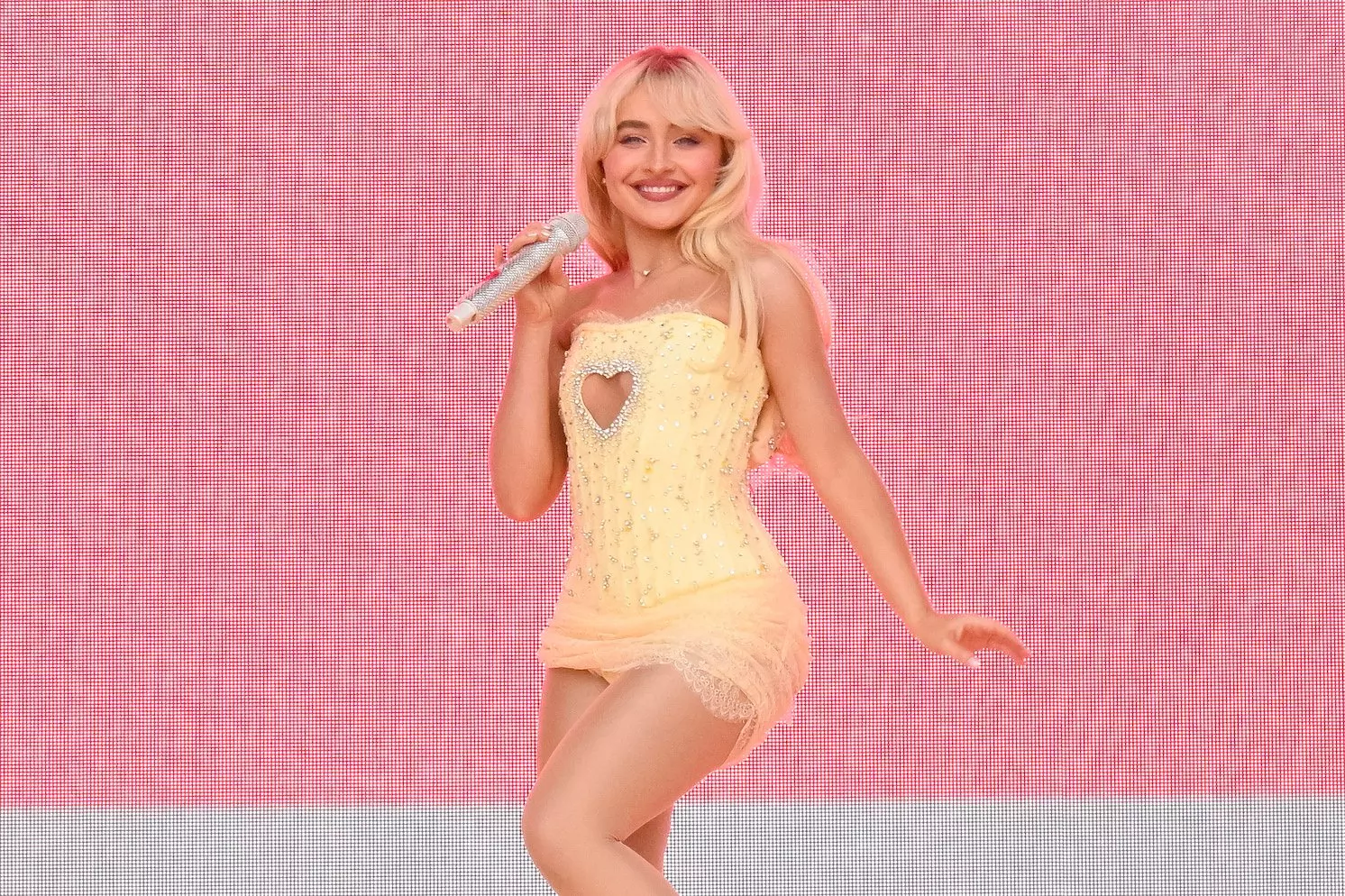
9 New Pride Anthems For 2024: Sabrina Carpenter's "Espresso," Chappell Roan's "Casual" & More
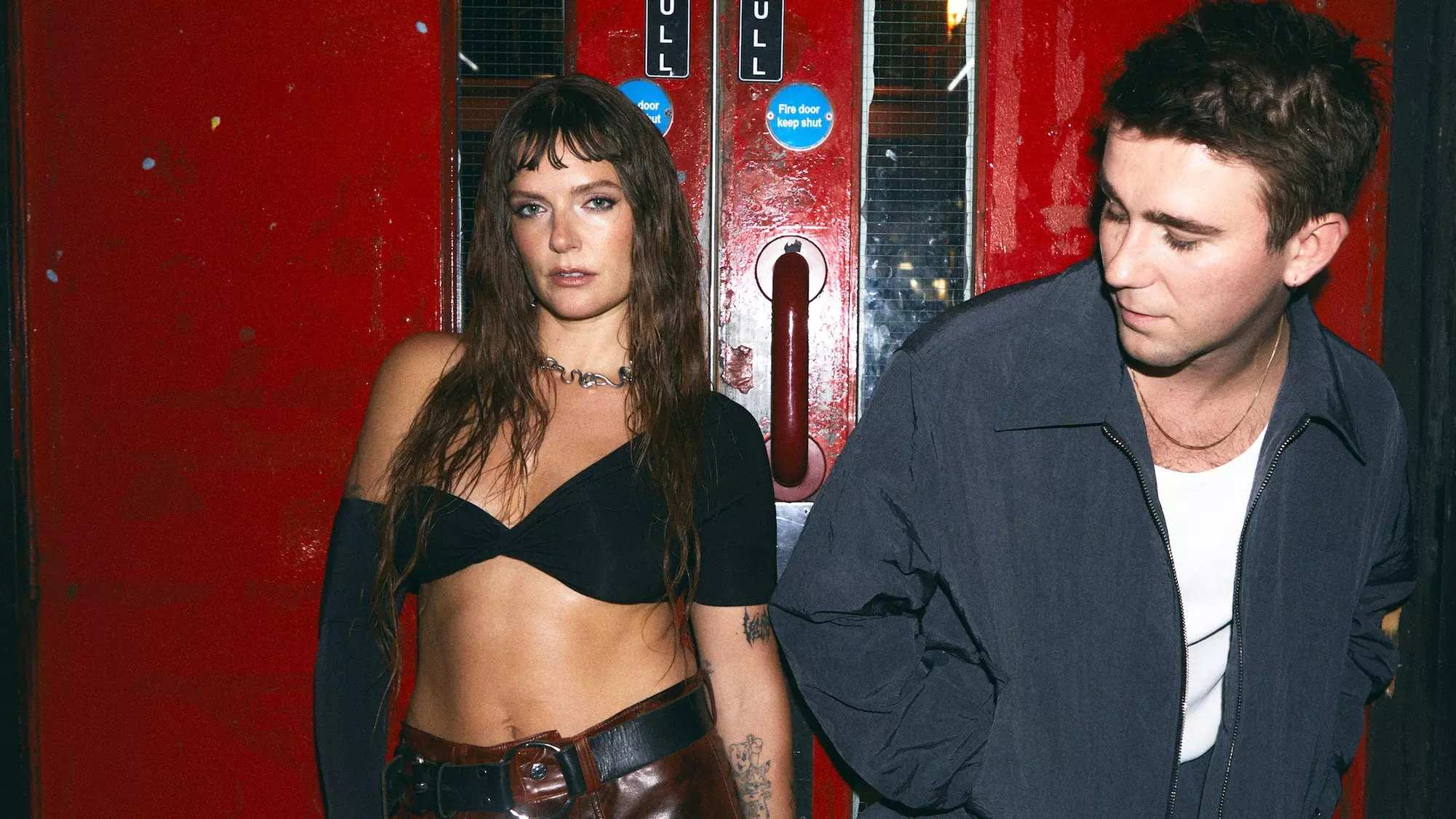
Tove Lo & SG Lewis Crafted Sweaty New EP 'HEAT' In Celebration Of Their Queer Fans
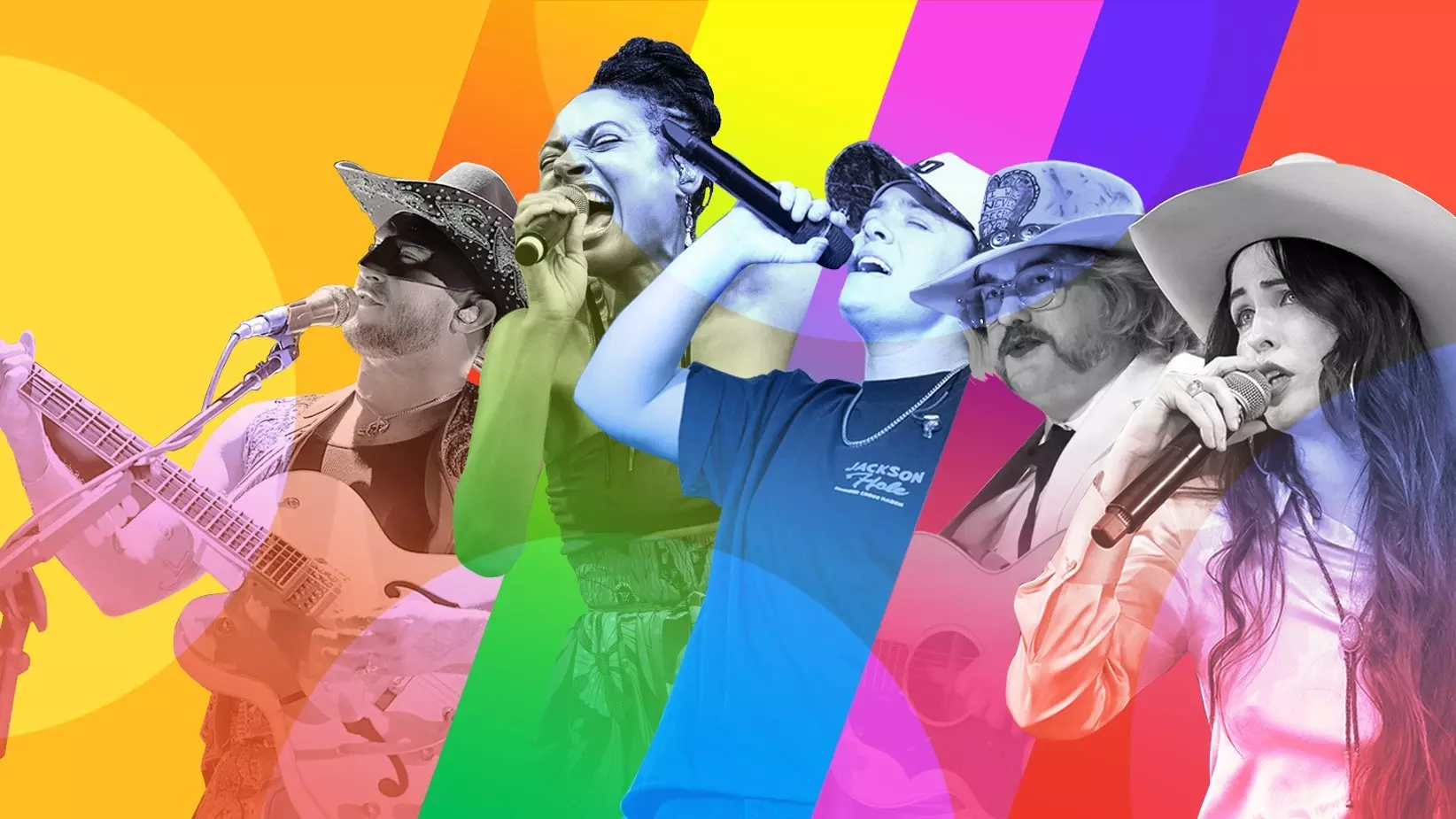
How Queer Country Artists Are Creating Space For Inclusive Stories In The Genre
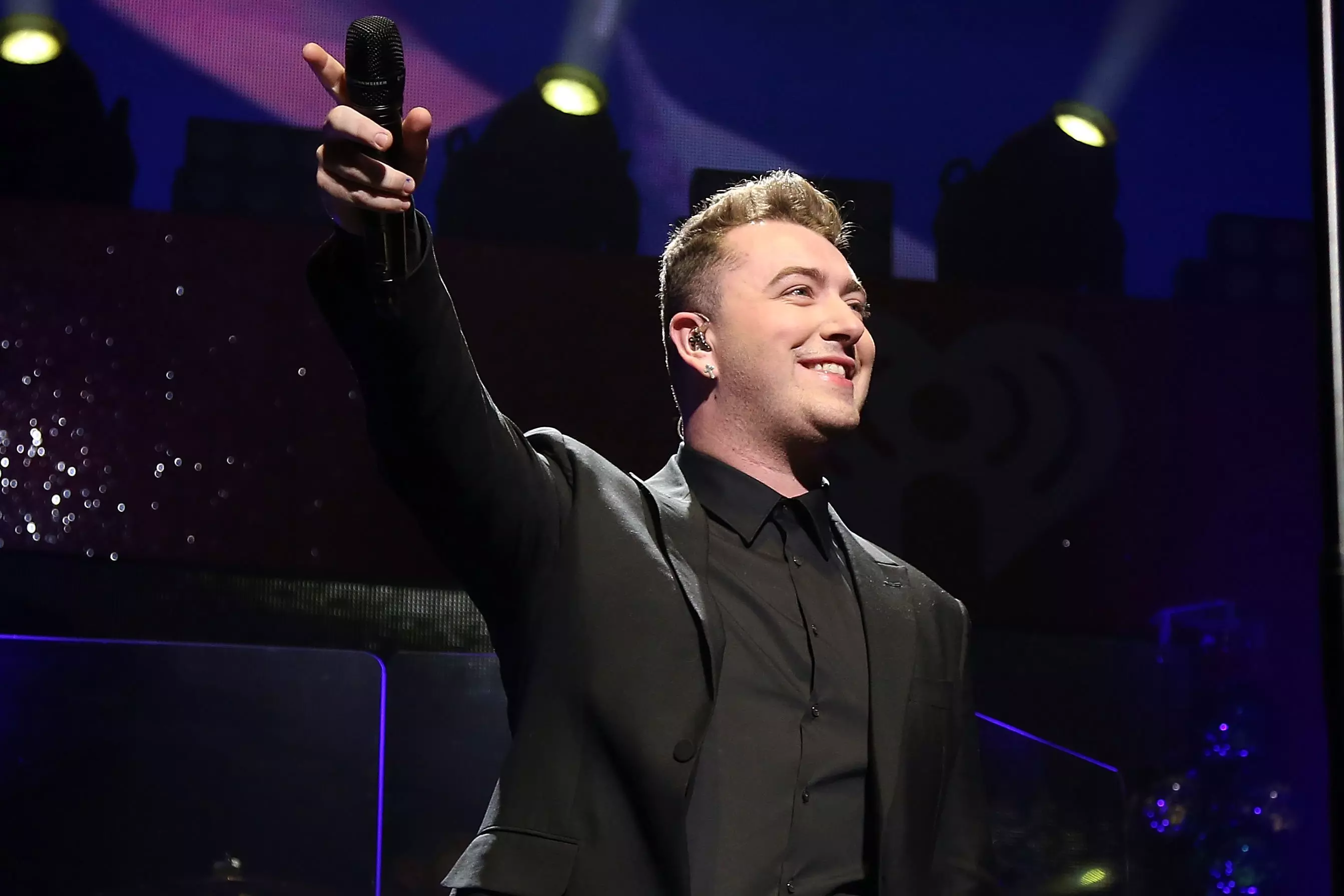
How Sam Smith's 'In The Lonely Hour' Became An LGBTQIA+ Trailblazer
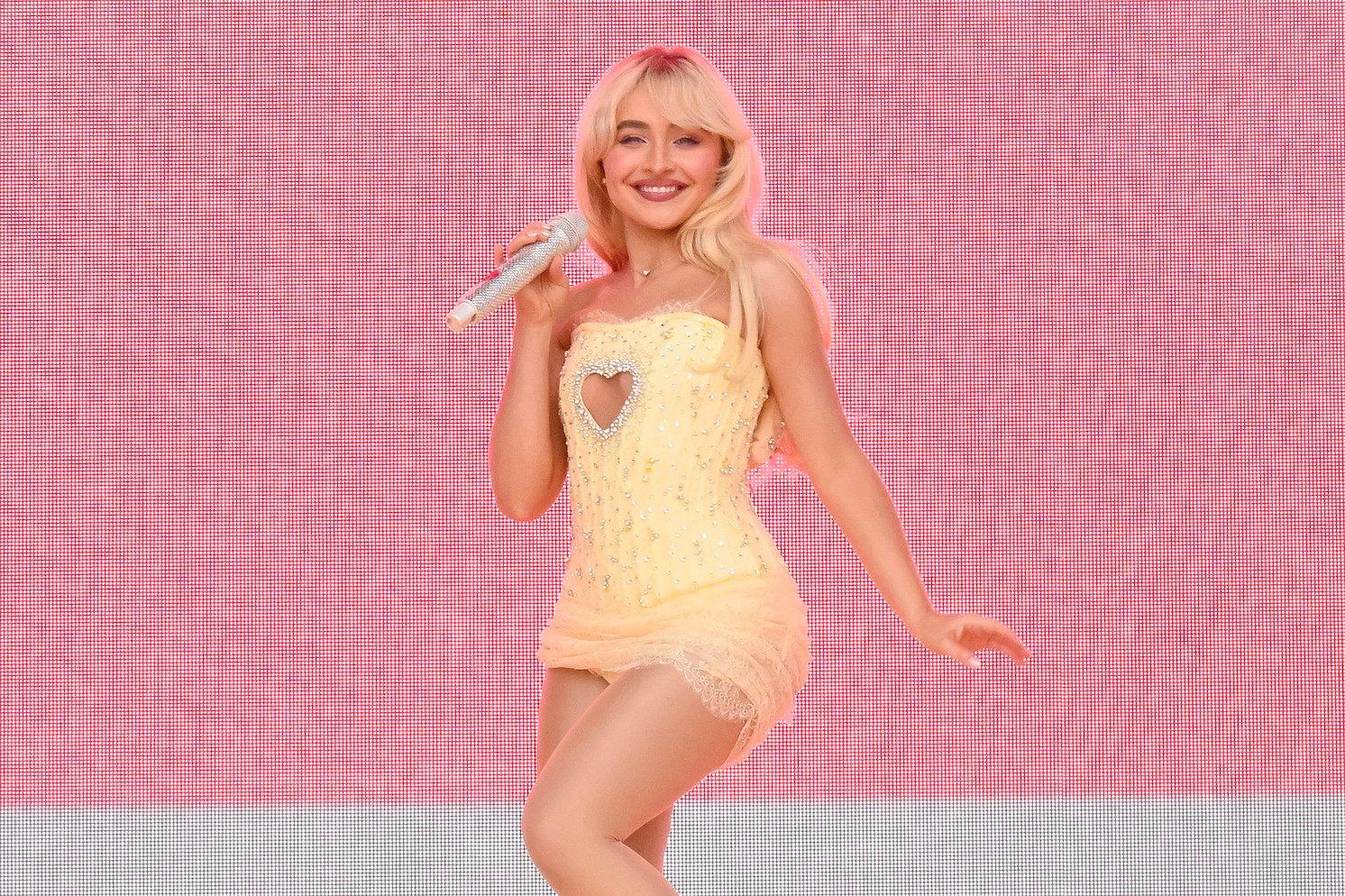
Photo: Astrida Valigorsky/Getty Images
list
9 New Pride Anthems For 2024: Sabrina Carpenter's "Espresso," Chappell Roan's "Casual" & More
Throughout the past year, a slew of music's brightest stars have blessed us with a batch of fresh songs that have quickly been embraced by the LGBTQIA+ community as classics, from Dua Lipa's "Houdini" to Troye Sivan's "One Of Your Girls."
Every June, Pride Month offers a time for the LGBTQIA+ community to reflect and raise awareness — but also, to party it up. While there were plenty of Pride anthems to pack playlists prior to this year, the past 12 months have seen some flawless new additions from a mix of fresh talent and long-standing stalwart artists that the queer community happily embraces.
While there's no set template on how to create an undeniable Pride anthem, there are major hallmarks: high-energy tempo, candid lyrics, delicious camp, and an undeniable groove. Between pop bops and dance floor jams, no Pride party is complete without at least a couple of the songs listed below. Cheers to the cathartic power of music to usher in another season of acceptance and equality.
Sabrina Carpenter — "Espresso"
You play it when you wake up. It's on the radio on the way to the club. It's playing at the club. Heck, it's even blasting at the gym the next day. 2024's newly crowned pop princess, Sabrina Carpenter, released an instant classic when she unfurled "Espresso" in April — more than enough time to learn the lyrics by Pride Month.
With an infectious melody targeting your ears like a jolt of morning caffeine, its steaming dose of memorable lines ("I'm working late/ 'cause I'm a singer") are the handiwork of Carpenter along with three veteran lyricists, including close collaborator Steph Jones, Amy Allen (Harry Styles, Selena Gomez) and Julian Bunetta, who is perhaps best known for his plethora of work with One Direction. "Espresso" marks further proof that if there's one thing Carpenter knows it's how to command an audience, whether through her captivating stage shows or viral, story-telling music videos that link together (including for recent single "Please, Please, Please").
Charli XCX — "360"
It's safe to say that Charli XCX is experiencing a new phase of her decade-long career as a critically acclaimed starlet. Her sixth studio album, BRAT, marks an evolution of her sound into a batch of adult tracks tailor-made for the club. As a result, it's spawned a number of viral memes among her legions of LGBTQIA+ fans, who have also boasted lime green avatars on social media in honor of what's being dubbed "brat summer."
It's no coincidence then that she'd release the project in the midst of Pride Month, led by the relentlessly pulsating single "360." With lyrics that have quickly already found itselves queer canon — "Drop down, yeah, Put the camera flash on" — the album boasts a hyperpoop energy and unapologetic individuality, making her recent spate of shows some of the hottest tickets in town.
Read More: Charli XCX's Road To 'Brat': How Her New Album Celebrates Unabashed Confidence & Eccentricity
Orville Peck, Diplo & Kylie Minogue — "Midnight Ride"
Giddy up! One of the brightest out stars in the LGBTQIA+ musical universe, the ever-masked Orville Peck has made a name for himself as a queer outlier in the country music scene. So it stands to reason that he'd partner up with none other than Kylie Minogue — who had the defining song of Pride '23 in the form of "Padam Padam" — for their own anthem for 2024. The result is "Midnight Ride," a whistle-powered, Diplo-produced earworm that's perfect for a rainbow-tinted hoedown.
The team-up is part of Peck's forthcoming duets project, for which he recruited a cavalcade of singing partners for queer-themed country-tinged tracks in a unique two-volume album dubbed Stampede (which drops in full Aug. 2). The collaborators include Willie Nelson, who croons with Peck on the eye-raising ditty "Cowboys Are Frequently Secretly Fond of Each Other."
Dua Lipa — "Houdini"
When Dua Lipa released Future Nostalgia in 2020, it became an instant classic in the pop world and LGBTQIA+ lexicon alike, cementing Lipa (and songs like "Don't Start Now" and "Physical") into the grand pantheon of queer playlist magic. The pressure was on, then, for her follow-up to live up to its commercial success and fandom.
Cue "Houdini," from this year's Radical Optimism, a cathartic dance floor anthem by one of the gay community's newer idols. Aside from setting the perfect tone for Pride Month with its delicious hook and refreshing confident lyrics "(Prove you got the right to please me"), in an interview with SiriusXM Hits 1, Lipa said the production of the track set the tone for the new project: "I was like, "Okay, I feel like now I know exactly what this album's gonna be and what it's gonna sound like."
The Challengers soundtrack
Who knew that a soundtrack to a tense and sultry tennis drama would yield an album fit for the dance floor? The thumping array of tunes that Trent Reznor and Atticus Ross churned out for Luca Guadagnino's Challengers has proved to be a hit beyond the film, with its synth-propelled soundtrack proving to be a unique and wild tracks, including the driving "I Know."
Its embrace in the LGBTQIA+ community should come as no surprise considering the single note the director gave Ross before he started work. "The way he described 'Challengers' was in a one-sentence email," Ross told Variety earlier this year. "Do you want to be on my next film? It's going to be super sexxy.' Two x's."
Ariana Grande — "yes, and"
Ariana Grande is no stranger to gay-friendly anthems; in fact, she delivered one of 2020's most iconic Pride moments with her Lady Gaga duet, "Rain On Me." When her album eternal sunshine dropped earlier this year, it was no surprise that she'd offer a few more bops for a Pride playlist.
Among them is "yes, and," a Max Martin-produced hit that can get even your stiffest friend moving on the dance floor. Perhaps it's no coincidence, then, that the creative team took the sonic elements of ballroom culture — a uniquely queer LGBTQIA+ experience — and fused them with lyrics perfect for a personal Pride anthem. "Say that s— with your chest," she croons. We will, Ari!
Read More: Listen To GRAMMY.com's 2024 Pride Month Playlist Of Rising LGBTQIA+ Artists
Peggy Gou — "(It Goes Like) Nanana"
If you've been on a dance floor in the recent past, odds are you've grooved to nostalgic beats courtesy the South Korean producer Peggy Gou. The breakout star is known for her unique brand of throwback dance jams, which carry a distinct '90s-era flavor that has led her to be embraced in queer spaces from Fire Island to West Hollywood. The most infectious, "(It Goes Like) Nanana").... samples the German artist ATB's 1998 track "9 PM (Till I Come)," no doubt a reaction to the recent revitalization of 90s-era culture popular in the LGBTQIA+ community, which provides a thumping link to queer culture past.
"For me, the DJ is someone who teaches people the value of music and educates them," Gou told L'Official of her musical mission. "It is someone who transmits a beautiful memory and is somehow responsible for it."
Chappell Roan — "Casual"
While Roan has been a bubbling-under singer/songwriter for a handful of years, 2024 has proved to be decidedly her time to shine. Ever since the release of her debut album, 2023's The Rise and Fall of a Midwest Princess, her back catalog has logged impressive streaming numbers, and she's commanded massive crowds at the likes of Governor's Ball and Bonnaroo.
Part of her appeal comes from her unabashed candidness about her sexuality (Roan identifies as a lesbian) and resilience. Both are exemplified by her single "Casual," which is about a relationship that doesn't seem to get all that serious, for better or worse.
However, Roan told the Associated Press last year that normally she isn't so sexually candid. "The songs kind of give me the opportunity to act like that, and say that, and dress like that," she explained. "It's mainly to piss off — it's all a rebellion. That's what it is. It is very empowering, I think, for a lot of people. ... It's just not as empowering to me as it is living out a fantasy."
Read More: Chappell Roan's Big Year: The 'Midwest Princess' Examines How She Became A Pop "Feminomenon"
Troye Sivan — "One Of Your Girls"
By now, we've all heard Troye Sivan's infectious hit "Rush" or seen its viral music video — both of which earned the singer his first GRAMMY nominations this year. In the interim, his 2023 album, Something to Give Each Other, is filled with plenty of other tracks that speak intimately and eloquently about the queer experience.
Take, for example, the luscious "One Of Your Girls," a meditation on when a gay man has a transactional fling with an otherwise straight person. It subsequently has turned into yet another queer definitive anthem for the Australian star.
As a result, Sivan has turned into one of the musical heroes of the community: not only unabashedly talented, but an eloquent chronicler of the gay experience. Even better, as he told NPR last year, his queer-focused projects are as cathartic for him as they may be for listeners. "There's a big element of pride in the fact that I am now so comfortably, openly gay."
PRIDE & Black Music Month: Celebrating LGBTQIA+ & Black Voices
Listen To GRAMMY.com's 2024 Pride Month Playlist Of Rising LGBTQIA+ Artists
9 New Pride Anthems For 2024: Sabrina Carpenter's "Espresso," Chappell Roan's "Casual" & More
What's The Future For Black Artists In Country Music? Breland, Reyna Roberts & More Sound Off
Why Beyoncé Is One Of The Most Influential Women In Music History | Run The World
9 Ways To Support Black Musicians & Creators Year-Round
How Beyoncé Is Honoring Black Music History With 'Cowboy Carter,' "Texas Hold Em," 'Renaissance' & More
The Evolution Of The Queer Anthem: From Judy Garland To Lady Gaga & Lil Nas X
15 LGBTQIA+ Artists Performing At 2024 Summer Festivals
50 Artists Who Changed Rap: Jay-Z, The Notorious B.I.G., Dr. Dre, Nicki Minaj, Kendrick Lamar, Eminem & More
Fight The Power: 11 Powerful Protest Songs Advocating For Racial Justice

How Rihanna Uses Her Superstardom To Champion Diversity | Black Sounds Beautiful

How Beyoncé Has Empowered The Black Community Across Her Music And Art | Black Sounds Beautiful
5 Women Essential To Rap: Cardi B, Lil' Kim, MC Lyte, Sylvia Robinson & Tierra Whack
Celebrate 40 Years Of Def Jam With 15 Albums That Show Its Influence & Legacy

Watch Frank Ocean Win Best Urban Contemporary Album At The 2013 GRAMMYs | GRAMMY Rewind
A Brief History Of Black Country Music: 11 Important Tracks From DeFord Bailey, Kane Brown & More
10 Women In African Hip-Hop You Should Know: SGaWD, Nadai Nakai, Sho Madjozi & More
10 Artists Shaping Contemporary Reggae: Samory I, Lila Iké, Iotosh & Others
The Rise Of The Queer Pop Star In The 2010s
How Sam Smith's 'In The Lonely Hour' Became An LGBTQIA+ Trailblazer
How Queer Country Artists Are Creating Space For Inclusive Stories In The Genre

How Jay-Z Became The Blueprint For Hip-Hop Success | Black Sounds Beautiful

How Kendrick Lamar Became A Rap Icon | Black Sounds Beautiful
Dyana Williams On Why Black Music Month Is Not Just A Celebration, But A Call For Respect
6 LGBTQIA+ Latinx Artists You Need To Know: María Becerra, Blue Rojo & More
7 LGBTQ+ Connections In The Beatles' Story
Breaking Down Normani's Journey To 'Dopamine': How Her Debut Album Showcases Resilience & Star Power
10 Alté Artists To Know: Odunsi (The Engine), TeeZee, Lady Donli & More

Celebrating Black Fashion At The GRAMMYs Throughout The Decades | Black Music Month
FLETCHER Is "F—ing Unhinged" & Proud Of It On 'In Search Of The Antidote'
For Laura Jane Grace, Record Cycles Can Be A 'Hole In My Head' — And She's OK With That
15 Essential Afrorock Songs: From The Funkees To Mdou Moctar
50 Years In, "The Wiz" Remains An Inspiration: How A New Recording Repaves The Yellow Brick Road
Why Macklemore & Ryan Lewis' "Same Love" Was One Of The 2010s' Most Important LGBTQ+ Anthems — And How It's Still Impactful 10 Years On
Songbook: The Complete Guide To The Albums, Visuals & Performances That Made Beyoncé A Cultural Force

Why Cardi B Is A Beacon Of Black Excellence | Black Sounds Beautiful
Queer Christian Artists Keep The Faith: How LGBTQ+ Musicians Are Redefining Praise Music
9 Revolutionary Rap Albums To Know: From Kendrick Lamar, Black Star, EarthGang & More
9 "RuPaul's Drag Race" Queens With Musical Second Acts: From Shea Couleé To Trixie Mattel & Willam
5 Black Artists Rewriting Country Music: Mickey Guyton, Kane Brown, Jimmie Allen, Brittney Spencer & Willie Jones
How 1994 Changed The Game For Hip-Hop

How Whitney Houston’s Groundbreaking Legacy Has Endured | Black Sounds Beautiful
LGBTQIA+-Owned Venues To Support Now

Celebrate The Genius Of Prince | Black Sounds Beautiful

Explore The Colorful, Inclusive World Of Sylvester's 'Step II' | For The Record
Black-Owned Music Venues To Support Now
5 Artists Fighting For Social Justice Today: Megan Thee Stallion, Noname, H.E.R., Jay-Z & Alicia Keys
Artists Who Define Afrofuturism In Music: Sun Ra, Flying Lotus, Janelle Monae, Shabaka Hutchings & More
5 Trans & Nonbinary Artists Reshaping Electronic Music: RUI HO, Kìzis, Octo Octa, Tygapaw & Ariel Zetina
From 'Shaft' To 'Waiting To Exhale': 5 Essential Black Film Soundtracks & Their Impact
5 Emerging Artists Pushing Electronic Music Forward: Moore Kismet, TSHA, Doechii & Others
5 Artists Essential to Contemporary Soca: Machel Montano, Patrice Roberts, Voice, Skinny Fabulous, Kes The Band

How Quincy Jones' Record-Setting, Multi-Faceted Career Shaped Black Music On A Global Scale | Black Sounds Beautiful
5 Black Composers Who Transformed Classical Music
Brooke Eden On Advancing LGBTQ+ Visibility In Country Music & Why She's "Got No Choice" But To Be Herself
Let Me Play The Answers: 8 Jazz Artists Honoring Black Geniuses
Women And Gender-Expansive Jazz Musicians Face Constant Indignities. This Mentorship Organization Is Tackling The Problem From All Angles.

Histories: From The Yard To The GRAMMYs, How HBCUs Have Impacted Music
How HBCU Marching Band Aristocrat Of Bands Made History At The 2023 GRAMMYs
